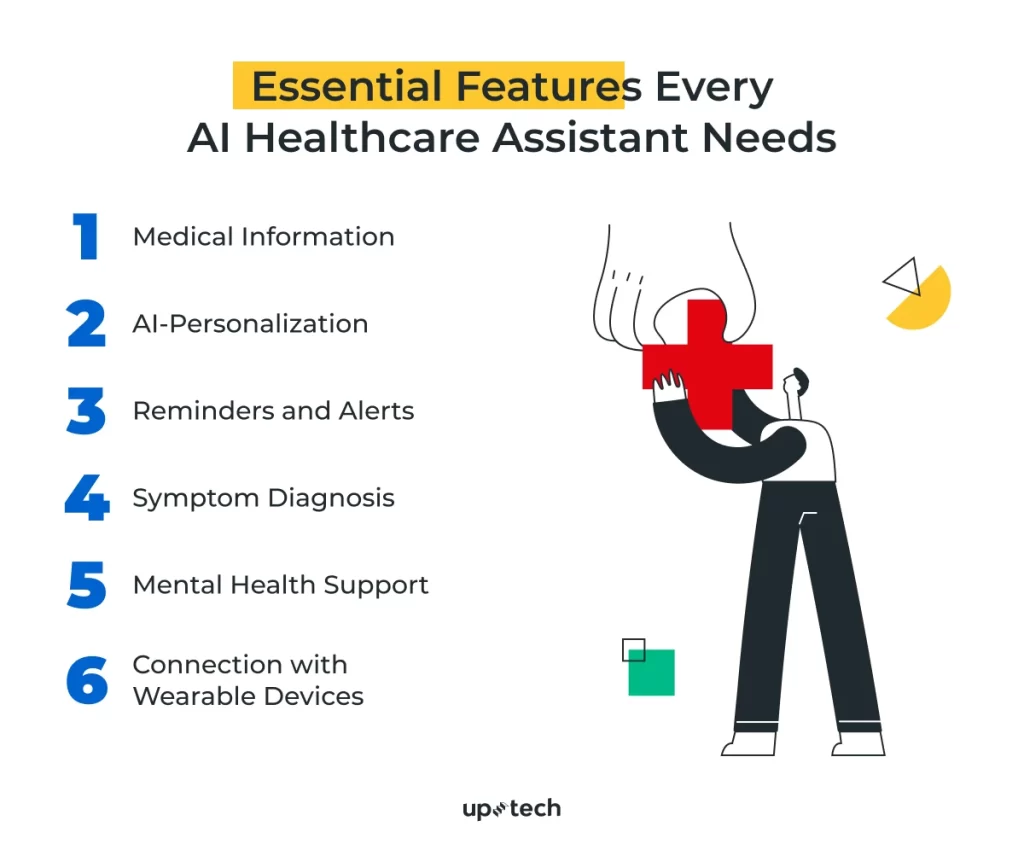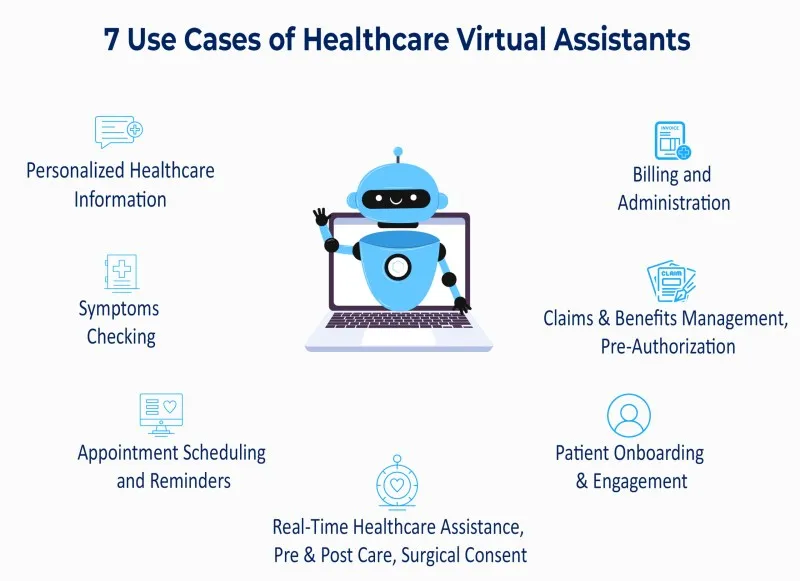
AI-Powered Personal Healthcare Assistants: Revolutionizing Modern Healthcare
Introduction
Artificial Intelligence (AI) is reshaping the healthcare industry, making personalized health monitoring, early disease detection, and virtual medical assistance more accessible. AI-powered personal healthcare assistants offer real-time health tracking, medical consultations, and wellness recommendations, significantly reducing hospital visits and improving overall well-being.
How AI-Powered Healthcare Assistants Work

- Wearable Health Monitoring
Devices like smartwatches and fitness bands track heart rate, blood pressure, oxygen levels, and sleep patterns. AI analyzes real-time data and provides alerts on abnormalities such as irregular heartbeats. - AI Chatbots & Virtual Assistants
AI-driven chatbots assess symptoms, provide medical advice, and help schedule doctor appointments. Examples include Babylon Health, Ada Health, and Woebot for mental health support. - Predictive Health Analytics
AI detects early signs of diseases like diabetes, heart disease, and depression. Companies like IBM Watson and Google DeepMind are leading predictive analytics research. - Medication & Treatment Management
AI reminds users to take medications and tracks treatment progress. Smart pill dispensers ensure proper dosage administration. - Voice & Gesture Control for Accessibility
AI-powered voice assistants help elderly and disabled individuals control home devices or call for emergency help. An example is Alexa Together, which supports senior healthcare needs.

Latest Developments in AI Healthcare Assistants
- Google’s Med-PaLM 2 is an AI-driven medical diagnosis tool.
- Amazon Halo tracks health metrics and offers personalized wellness plans.
- Apple Health AI uses machine learning for ECG and oxygen level analysis.
- IBM Watson Health focuses on AI-driven predictive analytics for diseases.
Advantages of AI Healthcare Assistants

- Early Disease Detection – AI detects symptoms before they become critical.
- 24/7 Health Monitoring – Continuous tracking of vital health metrics.
- Fewer Hospital Visits – Chronic conditions can be managed remotely.
- Personalized Healthcare Plans – AI tailors diet, exercise, and treatment recommendations.
- Remote Healthcare Access – Beneficial for patients in rural or remote areas.
Challenges & Limitations
- Data Privacy Risks – Protecting sensitive medical data from cyber threats.
- Accuracy Issues – AI can be biased if trained on incomplete datasets.
- Regulatory Hurdles – Strict medical approvals are required before AI can be widely used.
- Affordability & Access – High costs may limit adoption among lower-income populations.

Future of AI in Personal Healthcare
Between 2025 and 2027, advanced AI chatbots and wearables will become mainstream.
By 2030 and beyond, fully autonomous AI healthcare assistants will be integrated into hospitals, smart homes, and telemedicine services.
Conclusion

AI-powered personal healthcare assistants are transforming how individuals manage their health. By providing real-time monitoring, predictive analytics, and medical guidance, these AI-driven systems empower users to take proactive control of their well-being. While challenges like data security and regulatory approvals remain, advancements in AI and wearable technology will make healthcare more personalized, accessible, and efficient in the near future.
